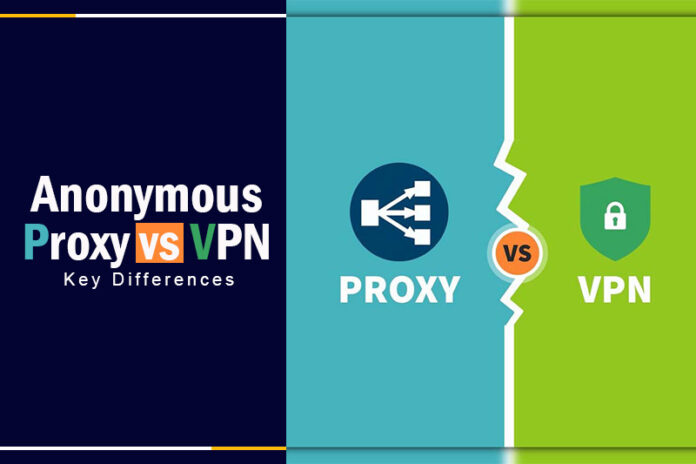Ever found yourself wondering which offers better online privacy: an anonymous proxy or a VPN? Confused about how they function and which one might serve your needs best?
Navigating the digital realm safely is a top priority for many, and understanding the differences between an anonymous proxy vs VPN is crucial. Dive into this blog to demystify these tools, ensuring you’re well-informed and ready to make the best choices for secure browsing.
The table summarizes the difference between Anonymous Proxy and VPN
| Function | Anonymous Proxy | VPN |
| Purpose |
|
|
| Security |
|
|
| Performance |
|
|
| Speed |
|
|
| Anonymity |
|
|
What is an Anonymous Proxy?
An anonymous proxy is a type of proxy server that hides your IP address and location from the websites you visit. It acts as an intermediary between your device and the internet, making your online activity appear as if it comes from somewhere else.
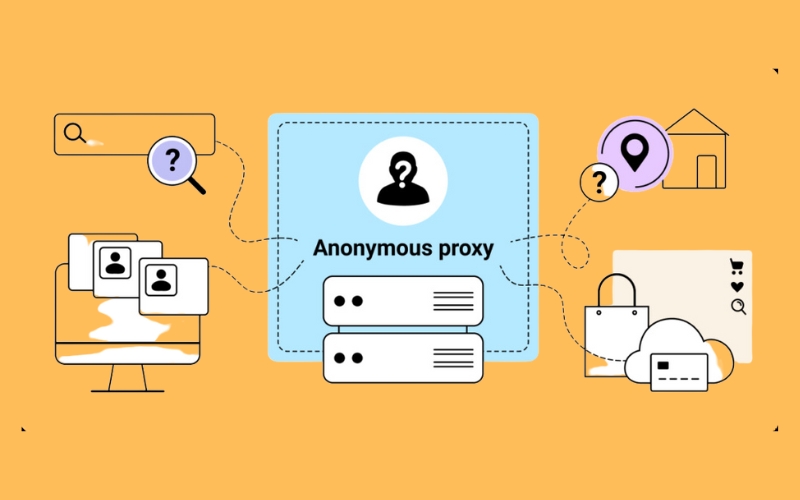
By using an anonymous proxy, you can protect your privacy, bypass censorship, and access geo-restricted content
Anonymous proxies, however, offer several other noteworthy benefits. Some of these prominent use cases include:
- Keeping your browsing activities private and confidential;
- Assisting users in circumventing content restrictions and avoiding personalized advertising, while also blocking intrusive online ads;
- Offering access to websites that might be geographically restricted;
- Facilitating automated tasks on the web;
- Enhancing web page load times when set up with caching configurations.
What Is a VPN?
A VPN is a virtual private network, a service that creates a secure and encrypted connection between your device and the internet.
A VPN can protect your online privacy, hide your IP address, and bypass geo-restrictions or censorship. A VPN can also help you access streaming services, online games, or websites that are blocked in your region.
At a fundamental level, a VPN and a proxy server share similarities. Both make your online activities seem to originate from a different IP address. However, VPNs offer an added layer of security.
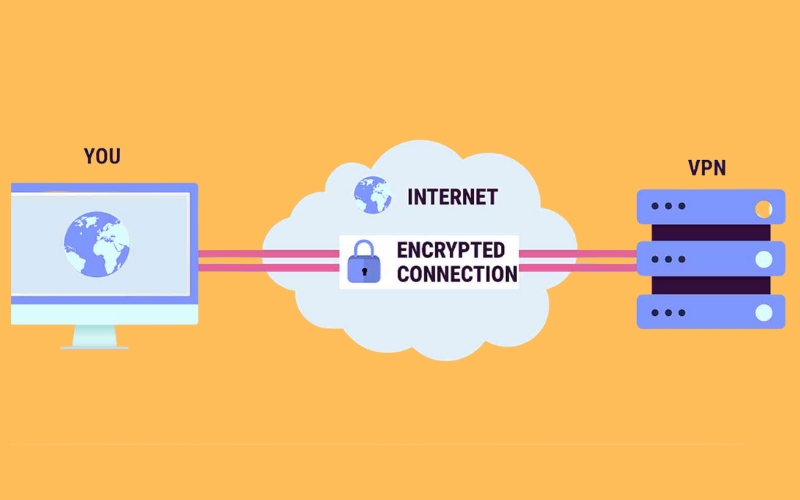
When you use a VPN, your traffic is directed through an encrypted channel that spans between the VPN’s network and your device or computer. This encryption makes VPNs a prime choice for bolstering network safety.
Choosing a trustworthy VPN provider guarantees users a more secure browsing experience, especially when accessing the internet in public areas like coffee shops. Instead of connecting directly to potentially insecure local Wi-Fi networks, users can route their connection through a VPN.
This approach is particularly vital when the local network lacks robust encryption or has frail security, as it can leave personal data vulnerable to unauthorized access.
VPNs come in various forms to cater to different needs. Some common types include remote access VPNs, extranet-based site-to-site VPNs, and intranet-based site-to-site VPNs.
What’s the Difference between Anonymous Proxy and VPN?
Both VPNs and anonymous proxies serve the primary function of masking the origin of your online activity. They achieve this by channeling your data through a server, thereby hiding your genuine IP address and presenting itself as the intermediary when reaching the target website.
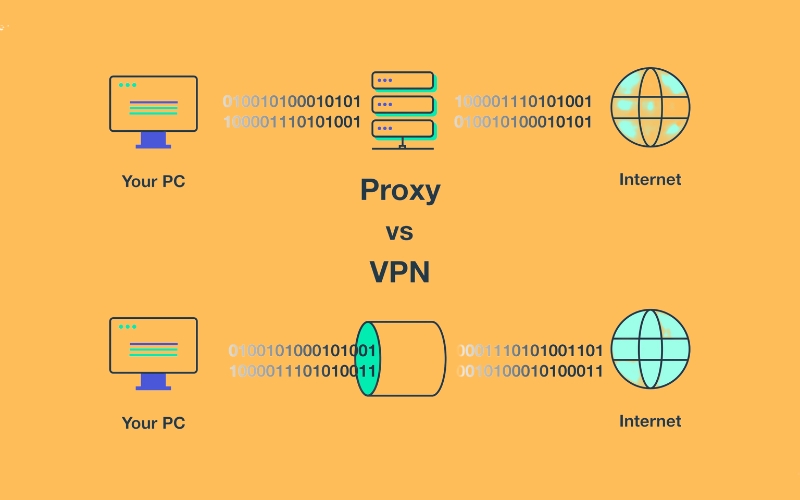
The difference between an anonymous proxy and a VPN is:
- An anonymous proxy only hides your IP address and location from the websites you visit, while a VPN also encrypts your data and secures your entire internet connection.
- An anonymous proxy works at the application level, meaning it only affects the traffic of a specific app or browser, while a VPN works at the operating system level, meaning it affects all the traffic of your device.
- An anonymous proxy is faster than a VPN, but it provides less protection and anonymity. A VPN is slower than an anonymous proxy, but it provides more protection and anonymity.
- A VPN focuses on protecting the traffic from a singular IP address, whereas an anonymous proxy can leverage a vast array of IP addresses for diverse automated tasks such as web scraping and digital research.
The Risks of Anonymous Proxy and VPN
They sound great, don’t they? But unfortunately, they come with several risks.
Higher Costs and Lower Productivity
One of the indirect consequences of employees using anonymous proxy and VPN software is proxy avoidance. This enables them to access websites and platforms, like social media, which might typically be off-limits.
The result? A noticeable dip in productivity. Moreover, indulging in streaming high-quality videos eats up significant bandwidth, adversely affecting the performance of other crucial systems. This could lead to slower system responses or even unscheduled outages. Misled by this increased demand, IT heads might find themselves erroneously investing in additional bandwidth.
Expose Network to Cyber-Attack
The more immediate and alarming concern of proxy avoidance is the potential for increased network vulnerabilities. Anonymous proxy and VPN tools essentially make devices ‘invisible’ to the IT department, letting them sidestep established security protocols.
A seemingly innocuous action, like an employee clicking a deceptive link, can bypass the organization’s firewall, injecting malware into the system. However, it is important to note that known vulnerabilities in popular VPNs, such as ExpressVPN, NordVPN, CyberGhost VPN, and Proton VPN, have been patched. These VPN providers have also taken steps to improve their security.
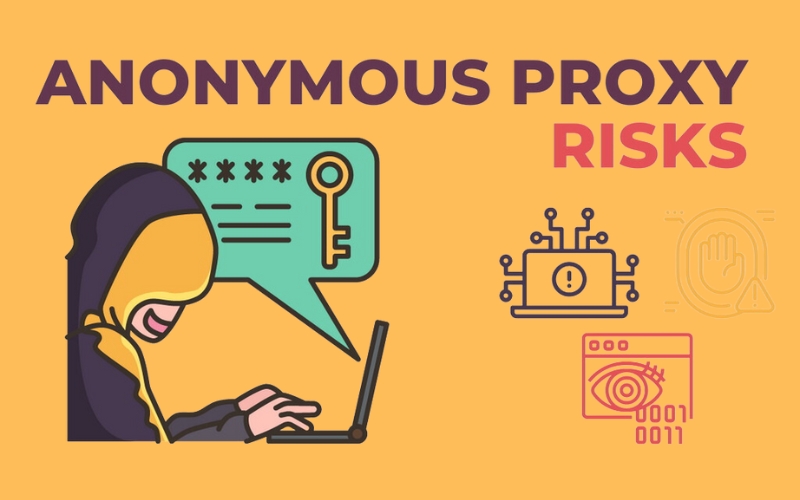
Sensitive Data Leakage
Beyond just evading security checks, these tools grant users access to restricted network resources. This presents a real threat of employees inadvertently or deliberately leaking classified information.
Alarmingly, despite assurances to the contrary, certain VPN services have been caught logging user data, with some even selling this information to external entities. The repercussions of such data breaches are manifold, ranging from the loss of a competitive edge and tarnished brand image to potential legal penalties.
To safeguard their networks, what IT teams truly require are robust tools to identify and thwart anonymous proxy and VPN applications from gaining network access.
Conclusion
In wrapping up the differences between an anonymous proxy vs VPN, it’s clear that both have their unique strengths and purposes in the world of online privacy. Your choice depends on your specific needs, the level of security you seek, your budget, and the type of devices you use
For a deeper dive into these topics and more insightful tech discussions, don’t forget to explore more blogs from Twistory. Stay informed and surf safely!

